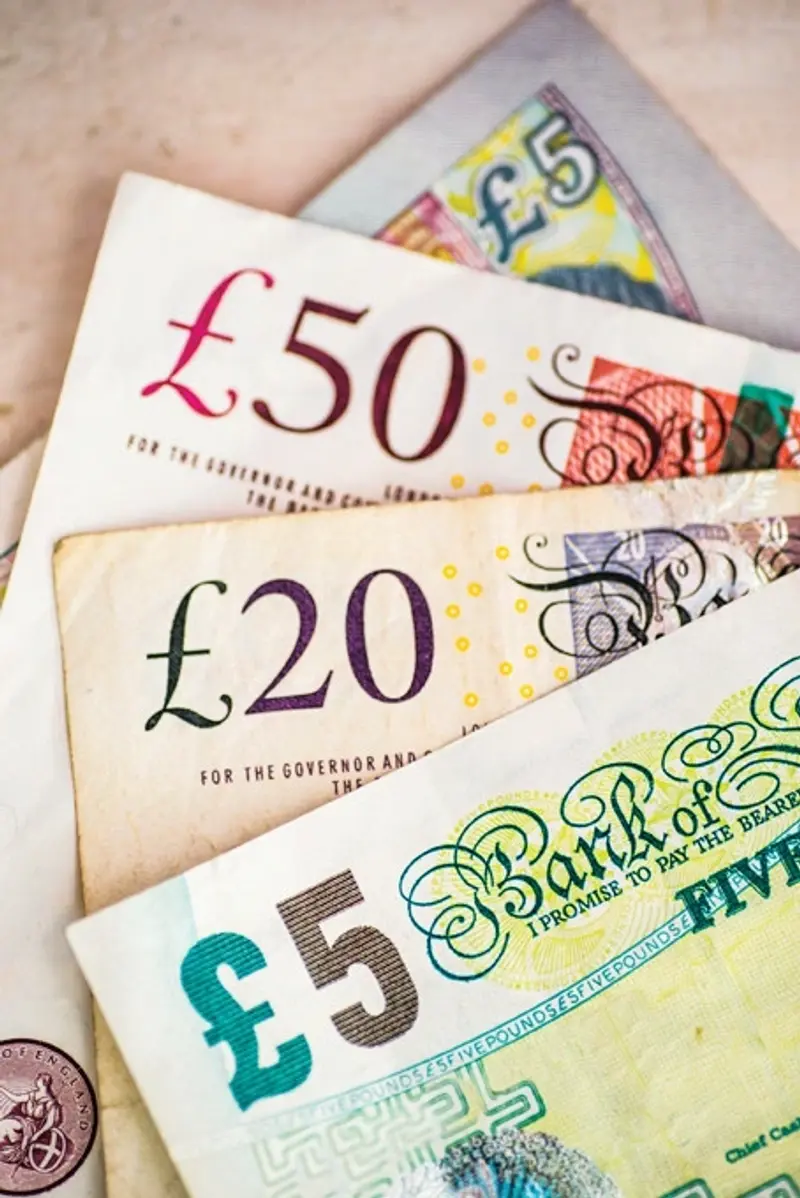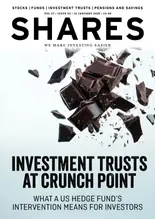
The pound was pushing toward $1.20 again early Wednesday, after a higher-than-expected reading of UK inflation was expected to mean more interest rate hikes ahead.
The FTSE 100 index opened up 9.11 points, 0.1%, at 7,378.55. The mid-cap FTSE 250 was down 168.48 points, or 0.9%, at 7,378.55, and the AIM All-Share was down 0.66 of a point, or 0.1%, at 847.80.
The Cboe UK 100 was up 0.2% at 737.59. The Cboe UK 250 was down 0.9% at 16,628.65. The Cboe Small Companies was up 0.1% at 12,960.19.
Annual inflation in the UK reached a never-before-seen high last month, data from the Office for National Statistics showed.
The consumer price index rose 11.1% in October from a year before, and up from 10.1% in September.
This was the highest annual CPI rate in the current National Statistic series, which began in January 1997.
The figure also came in higher than anticipated, with a reading of 10.7% expected according to FXStreet.
‘That, combined with wages that rose at the fastest pace in over a year revived the hawkish Bank of England expectations, although, the BoE insisted that the rate hikes won’t be as aggressive as the Fed’s due to unideal macroeconomic conditions,’ commented Ipek Ozkardeskaya, analyst at Swissquote Bank.
Analysts at ING agreed, saying it was ‘unlikely’ that the inflation figure would fall below double-digits until ‘early next year’. This, combined a with ‘tight jobs market’, pointed to a pivot back to a 50 basis point hike in December, rather than a halt to the tightening cycle, they said.
At it policy meeting earlier this month, the UK central bank raised rates by 75 basis points.
The pound edged up to $1.1900 on Wednesday morning in London, up from $1.1891 late Tuesday. On Tuesday, sterling had reached a high of $1.2014.
On Thursday, UK Chancellor Jeremy Hunt will unveil his autumn budget statement. The government is widely expected to announce billion of pounds worth of spending cuts and tax rises.
Chris Turner, analyst at ING, said the budget should, ‘on paper’, be ‘sterling negative’.
In the FTSE 100, Sage was the best performer in early trade, rising 6.0% as it reported strong annual revenue growth but a dip in pretax profit.
In the financial year that ended September 30, the enterprise software company posted a pretax profit of £337 million, down from £347 million the previous year.
Revenue, however, rose to £1.95 billion from £1.85 billion. The growth was underpinned by its Sage Business Cloud arm, which reported 24% revenue growth on an organic recurring basis.
Looking ahead, Sage said it entered its new financial year with ‘strong momentum’ and said it expects organic recurring revenue growth to be ahead of last year thanks to the strength of Sage Business Cloud.
Shore Capital said it will leave its estimates for financial 2023 and financial 2024 unchanged following the Sage results, noting they already were at the top-end of market consensus. ‘The company’s organic revenue growth prospects remain promising, in our view, and are likely to be resilient facing into recession risk,’ said analyst Martin O’Sullivan.
Shore reiterated its a ‘buy’ rating on Sage at 755p. It was priced at 801.40p early Wednesday.
SSE dropped 1.3% after the electricity provider reported it swung to an interim loss despite a 59% rise in revenue.
In the six months ended September 30, SSE posted a pretax loss of £511.0 million, versus a profit of £1.69 billion a year prior.
This came as costs rocketed to £6.13 billion from £1.19 billion the previous year. In addition, SSE noted the negative impact of fair value remeasurements totalling £1.5 billion, principally arising on forward commodity contracts.
More positively, SSE posted revenue of £5.63 billion, up 59% from £3.54 billion.
In the FTSE 250, Hill & Smith leapt 7.7% after a robust trading performance in the four-months to October 31 made the infrastructure engineering firm confident its full-year would come in ahead of market expectations.
Hill & Smith explained that revenue from operations in the period was 18% ahead of the previous on an organic constant currency basis. It added it was also experiencing a foreign exchange tailwind.
As a result, the company now expects full-year operating profit from continuing operations to be ‘ahead of the top end of current analyst consensus’ of between £84.9 million and £89.7 million.
CMC Markets plunged 10% despite reporting a slightly uptick in interim profit.
In half-year ended September 30, the contracts-for-difference trading platform said pretax profit rose to £36.6 million, from £36.0 million a year previous.
Chief Executive Peter Cruddas said that the period saw an acceleration in activity across FX and commodities, in addition to the normal activity across the company’s index flow.
CMC Market’s total revenue rose 17% year-on-year to £174.4 million from £149.1 million.
However, the firm’s total number of investing active clients dropped 11% to 164,632 from 185,847.
Deliveroo was down 2.3%. The food delivery firm announced it will end its operations in Australia, saying it cannot reach a ‘sustainable and profitable scale’ in the country without ‘considerable’ financial investment.
Chief Operating Officer Eric French said: ‘This was a difficult decision and not one we have taken lightly.’
The company’s Australian subsidiary, Deliveroo Australia, has therefore been placed into voluntary administration.
Stocks on the continent were mixed. The CAC 40 index in Paris was marginally higher, up just 1.47 points, while the DAX 40 in Frankfurt was 0.2% lower. The euro traded at $1.0392, up a touch from $1.0385.
In Asia, stocks ended mostly in the red. The Shanghai Composite and the Hang Seng in Hong Kong both closed 0.5% lower. In Tokyo, the Nikkei 225 closed up 0.1%. The S&P/ASX 200 in Sydney closed down 0.3%.
Multiple Chinese cities have cancelled routine mass Covid tests this week, days after Beijing announced limited relaxations of its strict zero-Covid policy which raised hopes of China’s eventual reopening.
Shanghai abolished mandatory mass testing by city district on Sunday, China News Service reported citing anonymous local officials.
Elsewhere, initial findings suggest the missile that hit Poland was fired by Ukrainian forces at an incoming Russian missile, according to US officials.
It comes after US President Joe Biden said it is ‘unlikely’ the missile that killed two people in Nato-ally Poland was fired from Russia, but pledged support for Poland’s investigation into what it had called a ‘Russian-made’ missile.
Gold rose to $1,776.55 an ounce early Wednesday from $1,770.82 late Tuesday. Brent oil fetched $94.35 a barrel, up from $93.03. Against the yen, the dollar was quoted at JP¥139.67, up from JP¥139.16.
Still to come on Wednesday, there is the UK house price index at 0930 GMT, before US retail sales data is reported at 1330 GMT.
Copyright 2022 Alliance News Limited. All Rights Reserved.




